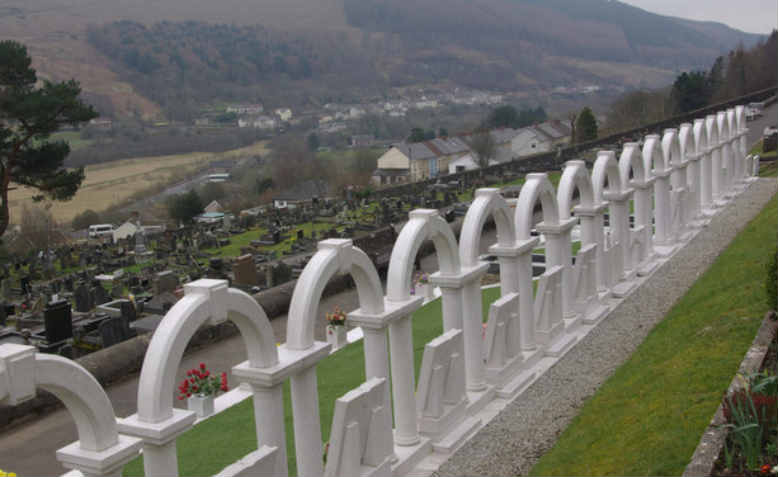 Graves of the children killed in the colliery disaster in 1966. Photo: Stephen McKay
Graves of the children killed in the colliery disaster in 1966. Photo: Stephen McKay
Fifty years after the mining disaster that killed 144 people, we should not forget that the survivors never got justice, writes Lindsey German
When I was studying oral history for my thesis, someone said to me that a lot of recollections from the 1960s talk about seeing things on television, which was for most people a new medium and of course still in black and white. I thought of this in the past week with all the recollections of the Aberfan disaster, whose 50th anniversary is tomorrow.
The television pictures from it are still very strong in my mind. It stands out as much as the images that I have of Vietnam, civil rights and apartheid. I was, like most people, horrified by it. I didn’t have any family connections with south Wales, but growing up in west London in the 50s and 60s you couldn’t really miss the Welsh. Many had come up from the valleys during the 1930s, often walking all the way, and those who didn’t stop in Slough often did settle in west London, working in the light industry on the Great West and North Circular roads. So I had friends and neighbours (and later family) from the valleys. At my primary school alone there were two Jones’s and Mr Thomas from Aberdare.
The tragedy of Aberfan was compounded by the knowledge that mining was a dangerous job, that the tip of slurry which bore down on the primary school and killed so many that day should never have been there, built on a spring which all the villagers knew was there, and known to be potentially dangerous in wet weather. Distress turned to anger at the contemptuous attitude of the Coal Board and its leader Alf Robens, and at the astonishing decision to use some of the money donated to the fund for the families to clear the slag heaps.
We should remember that this was under a Labour government, a Labour head of the NCB, working closely with a union which was tied very closely to Labour in a strongly Labour voting area. When we quite rightly call for renationalisation today, we should remember that it was never democratically controlled, even less so by the workers who dug the coal, and who rushed so bravely to try to rescue the children buried in the school.
If it seems like another world today, we should remember that many people are put at risk every day by dangerous industry, where corners are cut and risks ignored in the name of profit. We should also remember that this was still an age of deference. The Aberfan survivors did not get the justice they deserved, and have had to live with the tragedy ever since. One of the great things about the 1960s was that it punctured that sense of deference in so many places and different ways. It is hard to imagine such a tragedy taking place today without the development of campaigns like those over Hillsborough or Bloody Sunday, run by the survivors and their supporters, to demand much greater justice.

